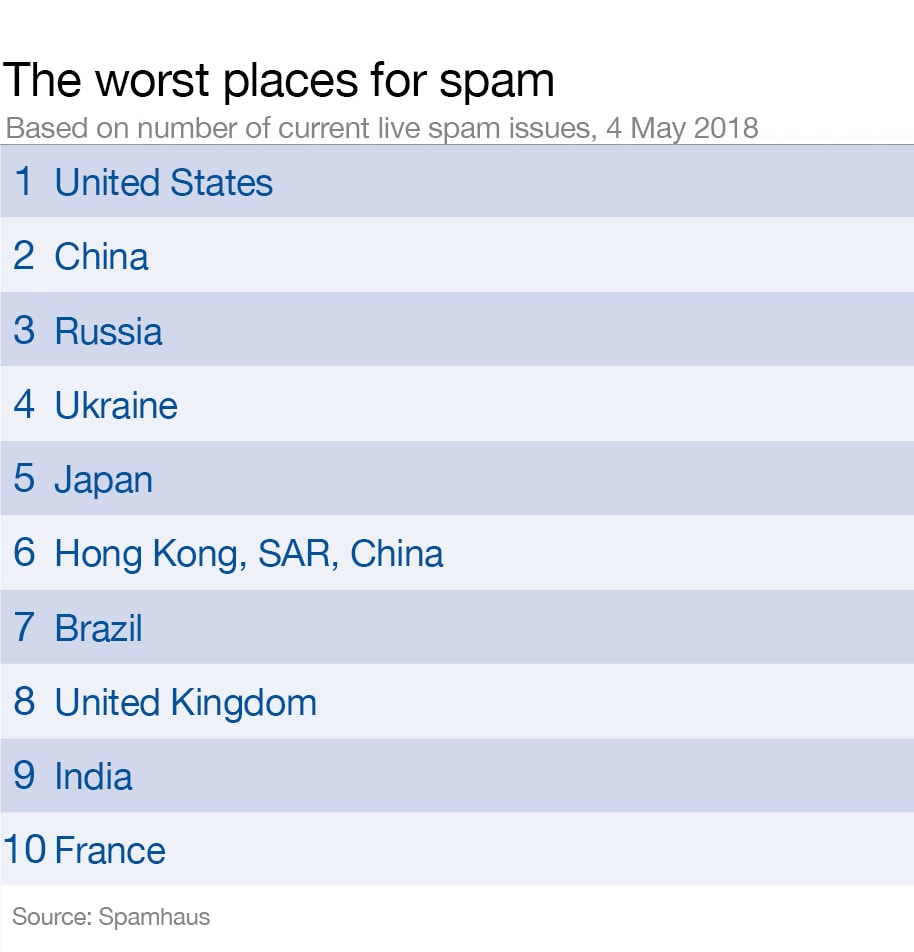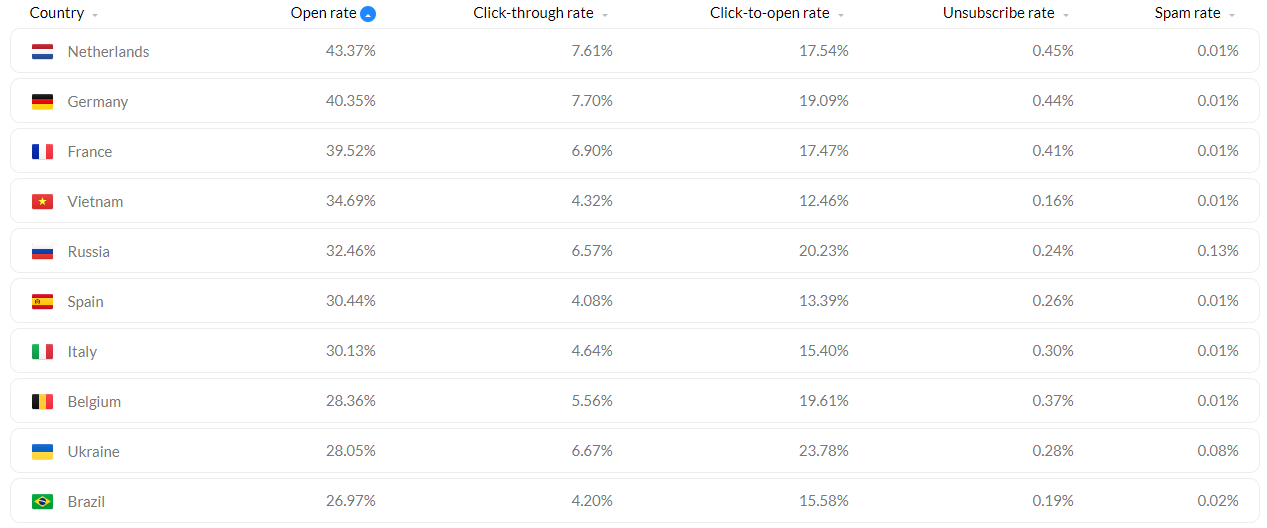40 years on from the first spam email, what have we learned? Here are 5 things you should know about junk mail

107 trillion spam emails were sent in 2010 Image: REUTERS/Gabrielle Lurie
Spam accounted for around 60% of all emails sent in 2017 - but the problem has persisted for years. The first unsolicited bulk email was reportedly sent in 1978 by Gary Thuerk, a marketing manager promoting a new model of computer.
Thuerk pitched to roughly 400 prospects via ARPANET, a forerunner to the modern internet, and reaped $13 million in sales for his company. The e-marketing ploy wasn't without controversy, however, and as Thuerk himself recalls, "complaints started coming in almost immediately."
A few days after the original e-mail, an ARPAnet representative called Thuerk to voice his displeasure. "He made me promise never to do it again," he said.
Here are five other interesting facts you probably didn't know about unsolicited email.
1. Spam costs billions each year
By 2010, an estimated 107 trillion pieces of spam email were being sent each year, costing around $130 billion per year in terms of lost productivity, energy costs and increased equipment cost.
A report by the UK government finds that in 2016, fraudulent emails cost citizens an estimated £10 billion, with almost 700,000 cases on cyber fraud recorded that year. The report says there could have been as many as 1.9 million incidents.
2. Botnets boosted spamming potential
And while Thuerk may have sent the world’s first spam email, the nuisance only truly exploded in 2003 with the introduction of “botnets”.
Botnets - a phrase that combines the words “robot” and “network” - were designed to send millions more junk emails per day than was previously possible.
A report by Eureka magazine identified a botnet known as Rustock. It’s is the largest botnet on record and the report says it infected over one million computers and could send 30 billion spam emails per day. It was taken down in 2011, after around five years in operation.
3. The spam capital of the world
The US is the world leader in spam, according to data from Spamhaus. The non-profit tracks spam and other related cyber threats. As of 4 May, there were more than 3,000 live spam sessions in the US. China and Russia complete the top 3, while the UK, Japan and Brazil all feature.

4. Most spam is about healthcare
Healthcare-related junk email accounted for almost 27% of the global total in 2017, the most of any content category, Statista says. Following this, Malware equated to over a quarter of all spam sent, while dating-related spam accounted for over 21%.
5. Spam isn’t effective
While trillions of spam email are being sent every year, very few have the desired effect. Tech company Oracle + Dyn says that of 350 million spam email sent across a 26-day period during a test, click-throughs translated to just 28 sales. That equates to an effectiveness of one-in-12 million.
Email marketing and automation platform GetResponse also says that just 0.02% of all spam sent globally is opened. The open rate for emails we expect and have subscribed to, for example, is considerably more than this, at almost 25%.

Don't miss any update on this topic
Create a free account and access your personalized content collection with our latest publications and analyses.
License and Republishing
World Economic Forum articles may be republished in accordance with the Creative Commons Attribution-NonCommercial-NoDerivatives 4.0 International Public License, and in accordance with our Terms of Use.
The views expressed in this article are those of the author alone and not the World Economic Forum.
Stay up to date:
The Digital Economy
Forum Stories newsletter
Bringing you weekly curated insights and analysis on the global issues that matter.








